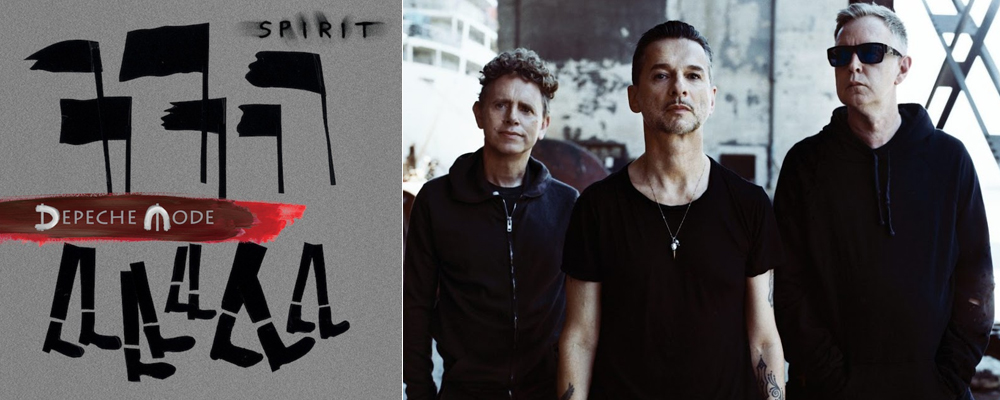Depeche Mode Mourns the Loss of Civility and Common Sense on Politically Charged ‘Spirit’
Stephanie Hernandez
Depeche Mode has spent most of their nearly 40-year career looking within, turning self-deprecating observations into catchy and sharp-witted synthpop. But on their 14th album “Spirit,” the Englishmen have decided to turn their attentions outward – applying the same critical, humorous-yet-morose perspective usually reserved for themselves to our current tumultuous world. Nearly every song on the 17-track LP in some way or another mourns the loss of basic civility, decorum, and dignity among modern man. Take the group’s recent endorsement from neo-nazi Richard Spencer, who claimed Depeche Mode was “the official band of the alt-right.” Fans can consider “Spirit” the band’s best right hook to the new poster boy of fascism.
“Spirit” does more with less this time around. The musical landscape here sounds full but not heavy-handed. Credit is likely due to new producer James Ford, who worked a similar magic on the Arctic Monkeys’ last record, “AM.” His talent for simultaneously being able to dial back the theatrics while punching up an album’s bass (think classic guitar, drum and bass harmonics) was well-suited here. Starting off with the bleak “Going Backwards,” it is clear what the record’s message is. “We’re going backwards, armed with new technology, we’re going backwards to a caveman mentality,” sings Gahan over melodic, restrained synths. From here we go further down the rabbit hole, towards the tenacious and passionate percussion of “So Much Love” and the smooth effervescence of “Cover Me,” where there are still moments of much-needed light. With melodies that are lush but not overpowering, the tracks do bring a kind of beguiling beauty to an otherwise despondent world view. Depeche Mode’s trademark angst and dissatisfaction are still present, lingering just beneath the surface throughout the album’s entirety. While the LP shows us a new side to Depeche Mode, it also gives us flashbacks to the group’s glory days of the late 1980s. The industrial core of “Poison Heart” and the record’s finale – a striking ballad called “Fail” – harken back to those times where doom and gloom met short-fused anger, and we were all ecstatic that Depeche Mode was there to put words to these abstract feelings.
Not a perfect record, “Spirit” does have its shortcomings. The lyrics on “Poorman” sound a bit oversimplified, edging on cheap pop clichés, while tracks like “Where’s the Revolution” are too on-the-nose – where instead of a protest anthem, we receive an overbearing, lackluster tirade. More focused on our general world order over the particulars causing them, “Spirit” does feel a bit underdeveloped, but is nonetheless a cathartic experience for anyone feeling the pressures of the current political climate.
Taking the opportunity to switch out their usual cheerless anecdotes for unequivocally political stances here is equally jarring and exciting. It reminds us why we fell in love with and continue to love Depeche Mode while also giving us something on which to chew. The trio sounds fervent here, awakened. It is clear that they’re not content simply going through the motions; they want their legacy to be something more than formulaic new wave pop. By mixing more streamlined electronic sounds with grittier, bluesier guitars and a more politically aggressive perspective, Depeche Mode shows us here that they are willing to change with the times. Their apathy is somehow matched by a certain optimism underneath all the melancholy, which may be the reason “Spirit” still feels relatable.
“Spirit” is available on Apple Music March 17.

